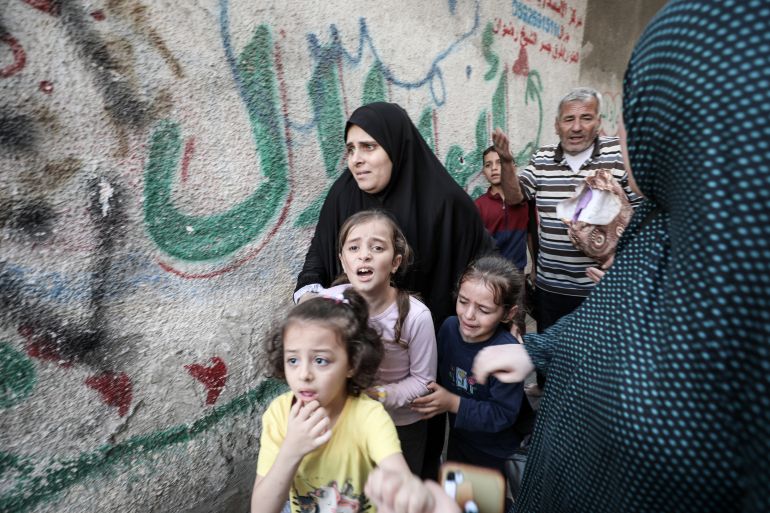Note4Students
From UPSC perspective, the following things are important :
Prelims level: Gaza strip
Mains level: education's potential to mitigate the impact of violent imagery children's minds.
Central idea
The article emphasizes the profound psychological impact of the Israeli-Palestinian conflict on children, drawing insights from educational thinkers like Maria Montessori and Elias Canetti. It highlights challenges such as potential long-term repercussions, the failure of current education systems, and the need for inclusive educational initiatives.
Key Highlights:
- Montessori’s Perspective: Maria Montessori’s insights on the impact of childhood experiences, particularly exposure to violence, on the cycle of revenge and its contribution to the root causes of war.
- Canetti’s Argument: Elias Canetti’s exploration of the child’s mind, emphasizing the development of revengeful thoughts from violent experiences and its potential evolution into adult rebellion.
- Israeli-Palestinian Conflict: The psychological aftermath of Israel’s assault on Gaza, with a focus on the predicted impact on Palestinian children, especially adolescents, facing forced displacement and an uncertain future.
- Educational Philosophies: Montessori’s pedagogic philosophy linking childhood experiences to major societal issues and the inter-war movement’s attempt to use education to combat the culture of war.
Key Challenges:
- Psychological Impact: Predicted long-term psychological repercussions on Palestinian children due to the trauma of conflict, displacement, and loss of childhood.
- Failure of Education Systems: Critique of current education systems worldwide for lacking the energy and focus needed to mitigate the political impact of dangerous ideologies and nurture peace.
- Historical Hostilities: The perpetuation of divisive ideas through education, contributing to the reinforcement of historical hostilities in contiguously located hostile nations.
- Political Ignorance: Leaders’ disregard for educational messages promoting peace, as exemplified by Israel’s leaders ignoring Montessori’s insights amid conflict.
Key Examples discussed in article for your value addition in answers:
- Reference to Maria Montessori’s classics, including “The Secret of Childhood” and “The Absorbent Mind.”
- Collection of Montessori’s war and peace lectures during the 1930s in the book titled “Education and Peace.”
- Elias Canetti’s insights in “Crowds and Power,” highlighting the impact of violence on the child’s mind and the development of revengeful thoughts.
- Montessori and Rabindranath Tagore’s involvement in an inter-war movement using education to combat the culture of war.
Key Terms and Phrases:
- Cycle of Revenge: Montessori’s concept that a child’s encounter with violence sets off a cycle of revenge, identified as a root cause of war.
- Resistance to Social Norms: Canetti’s notion that violence experienced in childhood can lead to adult resistance, transforming into rebellion.
- Culture of War: The inter-war movement’s initiative, involving educators like Montessori and Tagore, aimed at using education to combat the culture of war.
- Impact of Dangerous Ideologies: Critique of education’s perceived inability to reverse the political impact of ideologies contributing to conflict.
Critical Analysis:
- Educational Potential: Acknowledgment of education’s potential to mitigate the impact of violent imagery, coupled with frustration over the perceived lack of energy in current education systems.
- Global Disappointment with Education: Growing disappointment with education’s ability to nurture basic good sense, exemplified by the failure to prevent conflicts in Russia, Israel, and the U.S.
- Focus on Politics: Critique of current discussions about the future of Gaza, primarily focused on politics, with a call to include considerations for the future of education in the region.
- Reinforcement of Divisive Ideas: Observation that education often reinforces and perpetuates divisive ideas, preparing the adult mind to accept such ideas as the only way forward.
Way Forward:
- Inclusive Educational Initiatives: Emphasis on inclusive educational initiatives to combat the culture of war and break the cycle of historical influences on children’s minds.
- Integration of Philosophical Perspectives: Advocacy for integrating educational and philosophical perspectives to pave the way for a more peaceful future, particularly in conflict-ridden regions.
- Global Reassessment of Education: Urgent need for a global reassessment of education’s power to inculcate basic good sense and contribute to peace-building.
- Educational Focus in Political Discussions: Call to include discussions about the future of education alongside political considerations in conflict-ridden regions like Gaza and Israel.
Get an IAS/IPS ranker as your 1: 1 personal mentor for UPSC 2024

